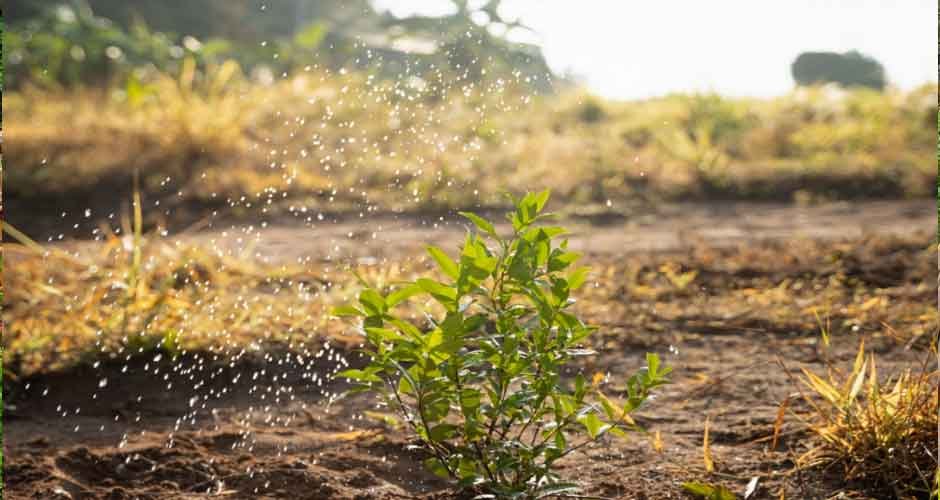Water scarcity has a profound effect on agriculture, as it directly impacts the ability to grow crops and sustain livestock. With increasing population and changing climate patterns, water resources are becoming limited, making it crucial for farmers to adopt water conservation practices.
So, what’s the potential impact? Well, insufficient water supply can lead to reduced crop yields, poor quality produce, and even complete crop failure. Additionally, the competition for water resources among various sectors puts agriculture at risk, highlighting the need for conservation measures.
The Role of Technology in Water Conservation for Farmers
Technology plays a critical role in enabling effective water conservation for farmers. From precision irrigation systems, which we will examine more deeply later, to remote monitoring and data analytics, technological advancements offer innovative solutions to optimize water usage and maximize crop productivity.
For instance, the Internet of Things (IoT) enables farmers to remotely monitor soil moisture levels, weather conditions, and irrigation equipment performance. Real-time data allows farmers to make informed decisions about irrigation, ensuring optimal water usage. Additionally, data analytics can provide valuable insights into crop water requirements, facilitating better water management practices.
Water Conservation Techniques for Farmers
Precision Irrigation Systems
Precision irrigation is a technique that enables farmers to deliver water directly to the root zone of plants, minimizing water waste and maximizing efficiency. This method involves using sensors and data analysis to determine the precise water requirements of each crop, allowing for targeted irrigation.
After tailoring water application to the specific needs of plants, farmers can avoid overwatering and reduce water consumption significantly. Additionally, precision irrigation systems can be automated, saving time and labor for farmers.
When growers automate the process of watering crops or plants through modern technology, they gain other benefits, too. For example, with the right irrigation automation system, growers can eliminate labor and time costs in addition to conserving water.
Soil and Water Management
Proper soil and water management practices play a vital role in water conservation. Farmers should regularly monitor soil moisture levels and adjust irrigation accordingly to avoid waterlogging or drought stress.
Applying mulch to the soil surface can help retain moisture and prevent weed growth, reducing the need for additional watering. Implementing conservation tillage techniques, such as no-till or reduced tillage, can also improve soil health, increase water infiltration, and minimize water runoff.
Efficient Water Storage and Harvesting
Efficient water storage and harvesting systems can significantly contribute to water conservation on farms. Installing rainwater harvesting systems, such as collection tanks or ponds, allows farmers to capture and store rainwater for later use.
The stored water can then be utilized during dry periods, reducing the reliance on freshwater sources. Implementing proper water storage and distribution infrastructure ensures that water is used efficiently and reduces the need for excessive pumping.
Government Programs and Incentives
Government programs often provide financial assistance, grants, or subsidies to farmers who invest in water conservation measures. These programs may also offer technical support and training to help farmers implement best practices for water conservation.
Growers should check out their local programs to learn about what’s on offer.
With the support of water conservation organizations, farmers can further accelerate their adoption of water conservation practices. By working together, farmers, policymakers, and technology providers can pave the way for a future where sustainable farming and water conservation go hand in hand.


